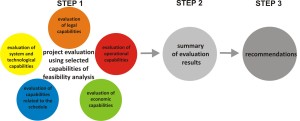
Miro Medvedec worked as a project manager for DME Company. In this capacity Miro Medvedec relied on project feasibility analyses to recommend products to clients.
Project management is the process of designing, planning, executing, and monitoring projects to accomplish a specific goal. Before undertaking a project, it is necessary to conduct a feasibility analysis to determine the cost of the project and its potential for success. This type of analysis is useful to catch any potential issues before the project is actually begun.
Project feasibility analysis measures the feasibility of five aspects of the proposed project:
1 Technical feasibility – What software and hardware are necessary for the project? Are team members with the necessary technical expertise in place to ensure success?
2 Economic feasibility – What are the costs associated with the project, and do the anticipated benefits outweigh the costs?
3 Legal feasibility – What applicable laws need to be considered and followed throughout the duration of the project?
4 Operational feasibility – Will the intended result of the project accomplish the desired goal?
5 Scheduling feasibility – When is the project to be completed, and is it reasonable to expect it to be completed on time?
Conducting a project feasibility analysis gives the stakeholders a comprehensive view of the project to determine whether it should move forward or be reconsidered.